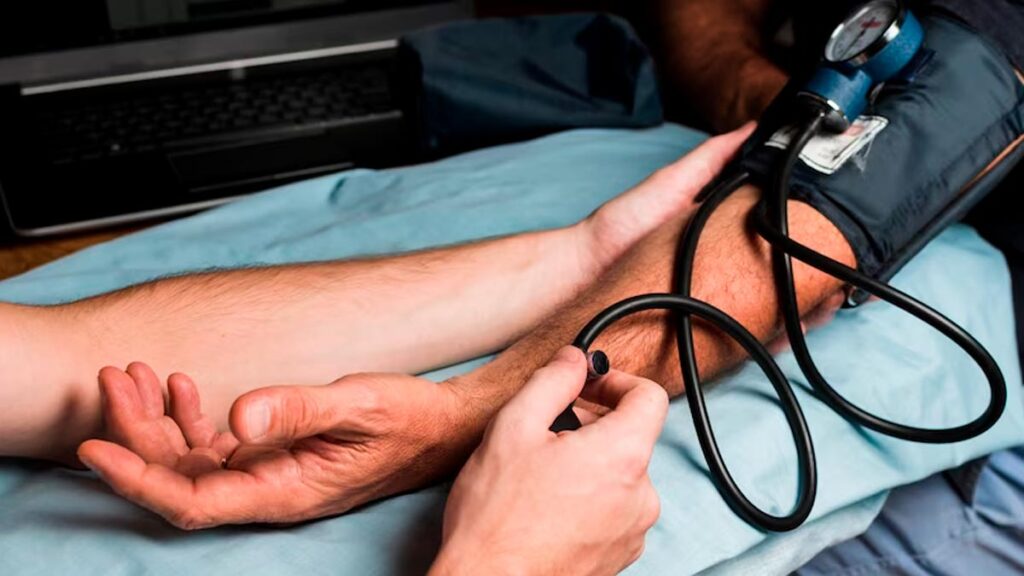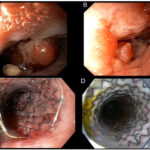Malignant essential hypertension is a life-threatening form of high blood pressure characterized by a sudden and severe increase in blood pressure levels. This condition can lead to organ damage, particularly affecting the heart, kidneys, brain, and eyes. If left untreated, it may result in fatal complications such as stroke, heart failure, or renal failure.

Causes and Risk Factors
Malignant essential hypertension is typically an advanced stage of essential hypertension (primary hypertension). While the exact cause is unknown, several risk factors contribute to its onset:
- Genetic predisposition – A family history of hypertension increases the likelihood of developing malignant hypertension.
- Poorly managed hypertension – Failure to control blood pressure through lifestyle modifications and medication can escalate the condition.
- Chronic kidney disease – Kidney dysfunction is both a cause and consequence of malignant hypertension.
- Adrenal gland disorders – Hormonal imbalances from conditions like pheochromocytoma or Cushing’s syndrome can raise blood pressure to dangerous levels.
- Excessive salt intake – High sodium levels contribute to increased blood pressure and fluid retention.
- Substance abuse – Cocaine, amphetamines, and excessive alcohol consumption are linked to hypertensive crises.
Symptoms of Malignant Essential Hypertension
Malignant hypertension presents with severe symptoms due to its impact on multiple organ systems:
- Extremely high blood pressure (usually above 180/120 mmHg)
- Severe headaches
- Blurred vision or vision loss due to optic nerve swelling
- Chest pain from strain on the heart
- Shortness of breath caused by fluid accumulation in the lungs
- Confusion or altered mental status due to reduced brain oxygenation
- Nausea and vomiting
- Kidney failure symptoms, including decreased urine output
Complications of Malignant Hypertension
Uncontrolled malignant hypertension can lead to severe health complications:
- Stroke – Elevated pressure can cause cerebral hemorrhage or ischemic stroke.
- Heart attack or heart failure – The increased workload on the heart can lead to cardiac complications.
- Kidney failure – Reduced blood flow to the kidneys impairs their function, potentially requiring dialysis.
- Retinal damage – Hypertensive retinopathy can lead to permanent vision loss.
Diagnosis and Evaluation
A diagnosis of malignant essential hypertension is based on:
- Blood pressure measurements – Readings consistently above 180/120 mmHg suggest hypertensive urgency.
- Ophthalmic examination – Detecting papilledema (optic disc swelling) is a key indicator.
- Blood and urine tests – Evaluating kidney function and electrolyte imbalances.
- Electrocardiogram (ECG) – Identifying heart strain or left ventricular hypertrophy.
- Imaging tests – CT or MRI scans may be performed to assess organ damage.
Treatment Strategies
Managing malignant essential hypertension requires immediate intervention to prevent life-threatening complications:
Emergency Medical Care
- Intravenous (IV) antihypertensive medications such as nitroprusside, labetalol, or nicardipine are used to lower blood pressure gradually.
- Oxygen therapy may be necessary for patients with respiratory distress.
- Continuous monitoring in an intensive care unit (ICU) setting ensures stable blood pressure reduction.
Long-Term Management
- Oral antihypertensive medications such as ACE inhibitors, beta-blockers, and calcium channel blockers are prescribed to maintain stable blood pressure.
- Dietary changes – Reducing salt, saturated fats, and alcohol intake is crucial for controlling hypertension.
- Regular exercise – Engaging in moderate physical activity improves cardiovascular health.
- Weight management – Obesity is a significant contributor to high blood pressure.
- Stress reduction – Techniques like meditation and deep breathing help manage blood pressure levels.
- Regular medical check-ups – Frequent monitoring helps adjust treatment plans as needed.
Prognosis and Prevention
The prognosis for malignant essential hypertension depends on timely medical intervention and adherence to treatment. Without treatment, mortality rates are high due to complications such as stroke and kidney failure. However, with proper blood pressure management, lifestyle modifications, and regular medical care, patients can significantly improve their long-term health.
Preventive Measures
- Regular blood pressure monitoring
- Adopting a heart-healthy diet
- Avoiding tobacco and excessive alcohol use
- Managing stress effectively
- Following prescribed medications consistently
Malignant essential hypertension is a critical medical emergency that requires immediate and sustained intervention. Early diagnosis and aggressive blood pressure management can prevent severe complications and improve long-term outcomes. Patients must work closely with healthcare providers to ensure effective control and reduce the risks associated with this severe hypertensive condition.

